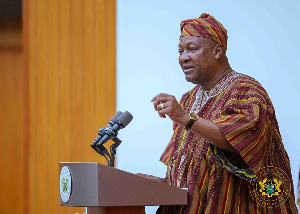While other financial institutions are lamenting the negative impacts on their operations during this abnormal time of Covid-19, it was not so with some Rural Banks.
Mr. Kennedy Obiri-Yeboah, the Board Chairman for Okomfo Anokye Rural Bank, said his bank had experienced an increase in customer deposits after the lockdown was lifted in April this year.
According to Mr. Obiri-Yeboah, this development would help them reach their highest deposit target from GHS 55 million (per month, before the lockdown) to GHS 60 million by the end of June.
“This is due to our ability to sustain withdrawals during the lock down that has improved confidence in our bank. It is also due to targeting businesses in the viable industries even in the period of the pandemic”.
Kennedy Obiri-Yeboah said this, speaking at a webinar on the “Effects of Covid-19 on Corporate Ghana- the Rural Banks” organized by Integrity Magazine and KRIF Ghana Limited.
However, he said COVID-19 pandemic had given rise to unprecedented challenges that had affected virtually every aspect of life.
In assessing the impact of Covid-19 on Ghana’s economy Mr. Obiri-Yeboah said, the estimated GDP growth was set to plummet from a target of 5.8% to about 1.5% in 2020; there had been a Shortfall in Import duties up to GHS808m; there had also been a Shortfall in other non-oil Tax revenues -GHS1, 446m.
Again, he explained that, Profitability wise, there had been reductions on the interest and fees income since Banks had to reduce interest rates to about 1.5% and 3%.
He added that the Economic downturn resulted in fall in asset prices: which meant possible lower collateral values, which would increase losses from foreclosure of collateral assets.
“There are limited financing opportunities since business activity has slowed down or has halted. Many customers no longer require loans”
He noted that during the lockdown period his bank could not send out the mobile bankers to collect the daily susu deposits which contributes more than GHS1m a month to liquidity.
“Some rural banks lost as much as GHS 5 million during the 21 days lock down period in April, 2020. Ashanti Region, the funeral industry which is a huge economic activity is under restrictions” he revealed.
According to Mr. Obiri-Yeboah, adopting digital banking platforms in response to the pandemic was a great cost to Rural Banks but that was the key strategic response to the COVID-19 pandemic and every rural bank must adopt since customers would keep bankers who offered them products using technology that enabled them observed social distancing, stayed at home or in their workplaces and yet had full access to banking services online.
He rolled out some strategies the Rural Banks should adopt going forward, these included; Adoption of more robust and next generation technologies; Deliver Education in the use of Digital platforms. (E-banking) and Live chat for additional customer support.
For his part, Dr. Alex Asmah, the Chief Executive Officer of Amenfiman Rural Bank, speaking on Lending to Rural Community Bank (RCBS) Customers in Post Covid-19 Era said most of the informal farmers, including cocoa and other crops obtained their credit needs from the RCBs in their community.
He said Amenfiman Rural Bank is known for providing credit support to farmers in their communities. He explained that, this year, Amenfiman extended credit of over GHC32 million to over 10,000 farmers using both individual and group lending strategies.
“Not only do these farmers have not collaterals, their farms are undocumented and most of them illiterates”, Mr. Asmah said.
He said at the initial stages of the restrictions, there were uncertainties about the future, so most RCBs switched to risk management mode mainly strategizing around possible impact of the Coronavirus pandemic on their banks.
Mr. Asmah said most the rural banks after building various risk scenarios came out with strategies to support their customers whose businesses were impacted by the coronavirus.
“It is very impressive how Rural Banks have demonstrated resilience and capacity to contain the impact of the coronavirus on their businesses and on their customers. It is worth noting that several rural banks have committed resources counting in several thousand of Ghana cedis to support their communities and the Health Ministry in the form of cash and non-cash items such as PPEs towards the fight against the pandemic.
In addition, several interventions have also been announced to support their clients in the MSMEs sector and farmers. Some of these interventions include moratoriums on loan repayments, deferment of monthly loan instalment and interest rate cuts from 150 – 200 basis points, far above the expectations of the Central Bank” He added.
He gave the following recommendations to help sustain and improve the RCBs and their customers. They included; the government should support the RCBs sector to be more comfortable to take the risks involve in funding farmers and MSMEs post Covid-19: there should be stimulus packages in the form special fund for RCBs for on-lending to their customers in the MSME and Agriculture sector with terms and conditions similar to that of CAP but should be focused on the economically active poor including micro and small businesses and farmers.
The Finance Ministry should speed up on the payment of ‘locked up’ funds with the defunct financial institutions whose licenses were revoked by the Securities and Exchange Commission (SEC) in 2019).
“I think the time is ripe for the government to consider a concessionary tax arrangement for the RCB sector as part of its support meant to strengthen the RCBs to better support the government’s financial inclusion agenda and the fight against extreme hunger and poverty post Covid-19.
In this regard, I recommend 1-2 years’ tax holiday (2020 -2021) and thereafter cut the corporate tax rate for the sector from 25% to 15% effective 2022 financial year”He said .
According to Rev. Kennedy Okosun, the Chief Executive Officer of Krif Ghana Ltd. and Krif Media, the webinar being the third edition of the series of Webinars was focused on the impact of Covid-19 on rural banks and strategies adopted to mitigate the negative consequences of the pandemic.
“This webinar created a platform for industry players, stakeholders and the general public to delve into these matters, redesigned their corporate strategies, informed and educated businesses on the steps that will help them excel within this period” Rev. said.
Press Releases of Thursday, 18 June 2020
Source: Krif Ghana Limited













